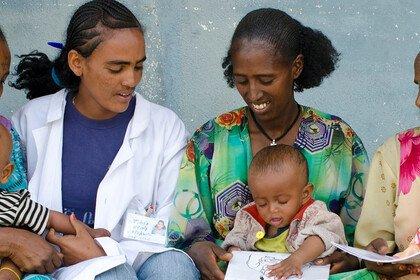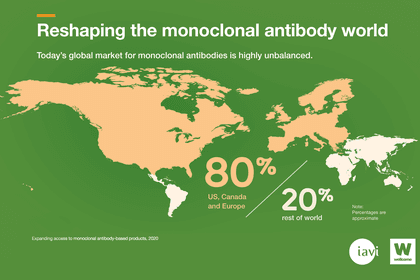
Equitable access to health technologies: lessons from Covid-19
The Covid-19 pandemic has highlighted how much work remains to be done to address global inequities in accessing health technologies such as vaccines, treatments and diagnostic tests.
This paper builds on our equitable access report from 2020 by returning to some of the key access challenges we outlined previously, reflecting on how they have been addressed during the pandemic, and highlighting areas where more action is needed.
What’s inside
- what Wellcome sees as the key challenges in supporting equitable access, particularly during the R&D process, and how they have been addressed so far during Covid-19
- five recommendations for further action.
Who this is for
- public, private and philanthropic funders
- policy makers
- civil society organisations
- anyone interested in access to healthcare interventions and technologies.
Report highlights
The global response to Covid-19 has resulted in impressive achievements: thanks to huge national and international efforts, tools to prevent, test and treat Covid-19 were developed less than a year into the pandemic. Yet, it has also highlighted painful realities: demand for vaccines continues to outweigh supply, and access has been slow in the majority of countries.
The challenges of the current pandemic are not yet over, but Covid-19 has already raised important questions about the systems we have in place to deliver access and the changes we need to make in future. As a funder of R&D, Wellcome is particularly interested in the role that those supporting and undertaking R&D can play in this.
Lessons from Covid-19 so far
- Priority-setting and collaboration: strengthened collaboration has enabled rapid development of Covid-19 tools, but more must be done to help scale supply of these tools to meet global needs.
- Transparency: the issue of transparency has been brought to the fore and some organisations have made positive steps, but there is still a long way to go before transparency becomes the norm.
- Investment: we have seen increased investment in R&D, procurement and distribution of Covid-19 tools, but the mechanisms to mobilise global funding are limited and major financing gaps remain.
Recommendations for actions
- Develop a lasting mechanism for collaboration on R&D and access.
- Identify long-term solutions for scaling supply capacity for pandemics.
- Increase transparency of public, private and philanthropic R&D investments.
- Agree a clearer, more consistent approach to access among funders of R&D.
- Create a more sustainable financing system for tackling global threats.

